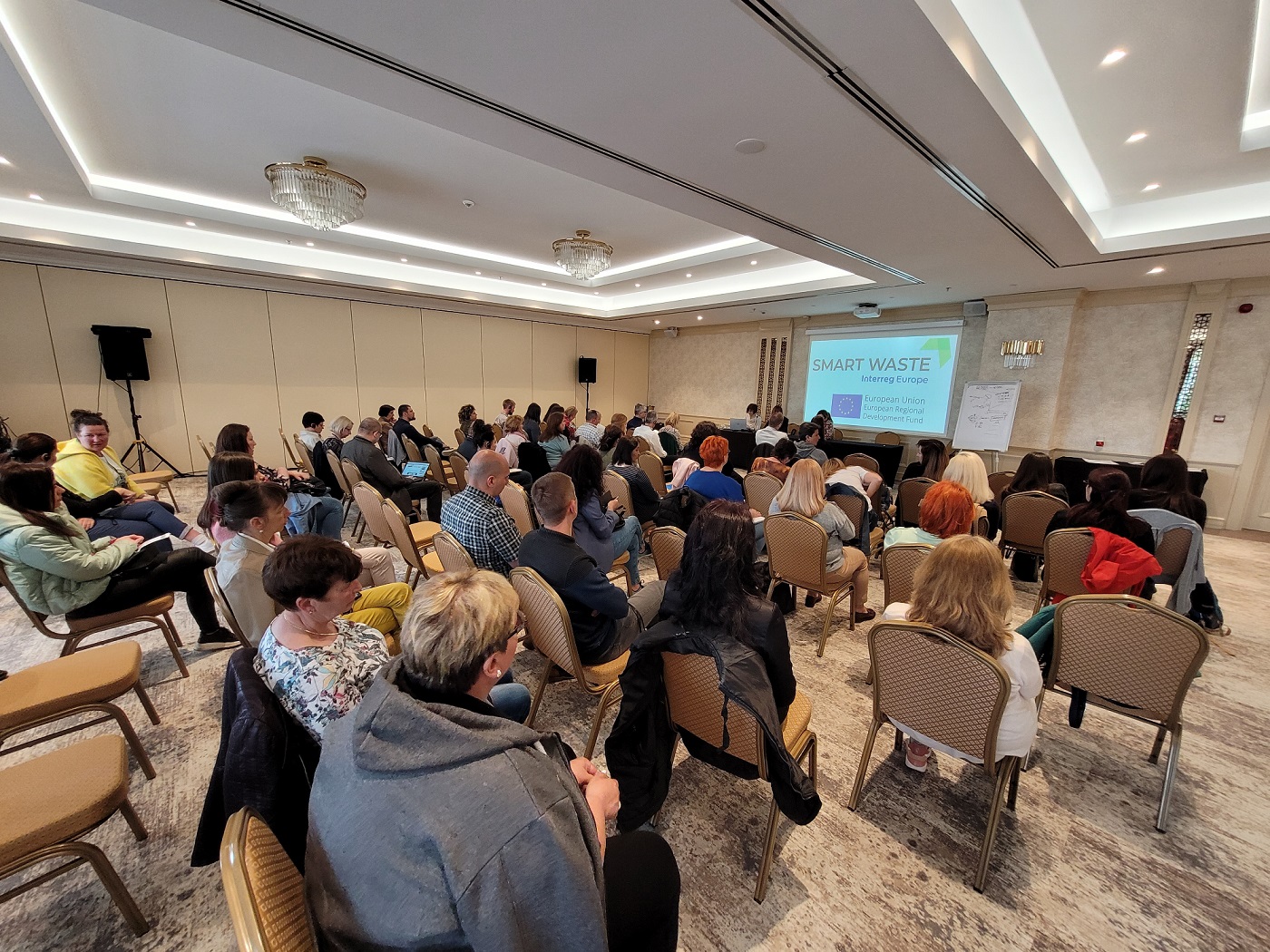
SMART WASTE ends with Final Conference in Sofia
Hosted by the Bulgarian Association of Municipal Environmental Experts, the event gathered a significant audience to witness the recap of the SMART WASTE projec
Local, regional, and national authorities are working hard to manage in an always more sustainable way their waste and implement a comprehensive and circular approach. They consider new approaches and technologies to reduce, reuse, recycle, and recover waste. They attempt to fit these into a comprehensive and circular approach.
SMART WASTE wants to improve public policy instruments supporting innovation within waste management procedures. The final result? Smarter, more effective, sustainable, and cost-efficient waste management, benefiting all territorial stakeholders.
But what are the results of their actions? Are these measures having a concrete impact? Could their implementation be more effective? The SMART WASTE project is born to answer these questions.
To make a long story short, the SMART WASTE project evaluated to what extent current national, regional and local policies have promoted successful innovation in waste management. It then proposes interregional solutions to address policy weaknesses.
How are partners proceeding?
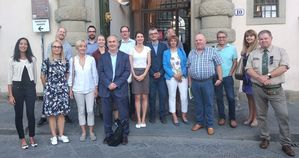
The project aims to understand the real impact that innovative policy measures have on the effectiveness and sustainability of waste management procedures. To do so, the five regional project partners chose one policy instrument to be assessed and improved. More information about the chosen policy instruments can be found below.
The first step for the regional partners has been to develop a shared methodology to evaluate, in close collaboration with local stakeholders, innovation in their waste management policies (see the results in the local evaluation reports). Through this policy analysis, they identified interregional Good Practices and assess them to find solutions to address potential failures in their selected policy instruments.
These good practices will be applied to partners’ regional policy contexts through concrete Action Plans aimed to address not only their policies of interest but also long-term recommendations for future policies. They will then implement their Action Plans with regional or national resources and with continued stakeholder engagement.
What are the expected results?
Each regional partner can expect to achieve several results. First, they can expect to have improved their policy instrument in terms of smart and innovative waste. Second, thanks to continuous engagement with their stakeholders, they can expect to have increased professional capacity among these stakeholders. Finally, they can also expect to have increased the awareness of the public about the importance of innovation in waste management and of related public policies.
€1,175,008.00
Environment and resource efficiency
SMART WASTE territories will see more waste prevention and increased reuse, recycling and recovery of waste, with knock-on environmental and economic benefits.
SMART WASTE will have a direct and concrete impact on waste management policies partners want to improve. The lessons learned throughout the first phase of the project dedicated to evaluation and creation of a two-part Action Plan will, of course, be used to improve the policies targeted in the project, and will also serve as guidance for the designing of future policies, making sure that innovation approaches are well embedded in their core.
Regional Operative Programme 2014-2020 (ROP) is strongly oriented to RTD and Innovation with a relevant percentage of the budget allocated to Axis I Innovation (34.72%) / Axis III (SME Competitiveness, 16.46%). ROP invests in low-carbon economy (Axis IV, 24.72%), but dedicates a low percentage to Axis V (Preserve the environment and promote efficient use of resources, 3.75%) mainly dedicated to natural and cultural heritage.
ROP has funded RTD projects on innovation in waste. For example, the 2017 R&D call (projects for large enterprises in collaboration with SME / research organisations) funded projects addressing innovation in environment, such as "SLUDGE 4.0" (transformation of bio-waste). ROP awards extra points in the evaluation stage to RTD projects aimed at environmental protection and sustainable use of resources. It reserves funding for new business and solutions based on green technologies.
However, improvements could be made to the ROP to ensure a greater potential to promote innovation in waste management. There is limited integration between the axes. Environment and Innovation represent two separate departments within the regional authority: this hinders integrated and coordinated development of the ROP axes. There is room for better integration between ROP and other regional strategies. ROP cannot work in a vacuum. It must link up to the regional context. We specifically refer to the Regional Plan for Waste Management and to new circular economy initiatives.
The Waste Management Plan (WMP) is a framework for waste-related actions targeting citizens, companies and the municipality. It is based on the government’s “Resource Strategy” reflecting the pre-2014 trend going from environment-friendly waste disposal and cleaning up, towards a zero waste and circular economy focus. Kolding strives to become the "National Champion in Circular Economy".
WMP supports better/innovative waste management. The outcome should be beneficial to citizens (lower costs and improved services), companies (counselling / access) and environment (higher resource efficiency / more sustainable business). The council wants to achieve a high level of recycling: from 25 % in 2013 to 50 % by 2022.
WMP expects to develop more and new innovative actions, e.g. a replicable shopping mall concept based on reused, refurbished, repaired, upcycled and recycled resources. WMP also wants to enhance cooperation between public and private actors to ensure job creation and economic growth, while educating citizens and engaging social enterprises. The circular model should also be integrated.
While the 50 % recycling goal is expected to be achieved, new EU regulation calls for higher levels of waste prevention and increased volume of reuse. Kolding Municipality must move further up in the waste hierarchy. Despite Kolding Municipality's several ongoing initiatives in the area, more can be done to improve and to live up to the municipality's design-driven innovation policies.
Axis 5 of the OP addresses "Environment, sustainable use of natural resources and adaptation to climate change". Two measures focus on waste: Development of municipal waste recycling capacity (K-009) and Development of municipal waste management infrastructure (R-008).
Beneficiaries, which are municipalities represented by municipal associations, receive funding for:
1. Purchase or modernisation of separately collected and / or recycled waste treatment facilities;
2. Public information on waste prevention / management issues.
3. Development of bio-waste collection containers / composting facilities;
4. Installation / reconstruction of container sites and purchase of containers;
5. Installation / upgrading / application for reuse of bulky waste disposal sites;
6. Creation of disposed item reuse infrastructure.
For points 1 and 2, (K-009), Terms of Reference have been agreed between Ministry and stakeholders, though not officially approved and a feasibility study is running. For R-008, activities are on going, but some budget remains. This is where SMART WASTE is likely to have most impact.
There is room for improvement to the OP. Current technologies for waste are expensive. Public policy should support innovation (R&D, new processes) that not only improve performance, but also help lower costs. The costs of processing waste must be shown to be lower than the costs of incineration. Only in this way, can sustainable waste treatment become a priority measure in the long run.
Priority Axis 2 of OP Environment 2014-20 is dedicated to Waste. Its purpose is to achieve compliance with the EU waste management hierarchy and objectives of national legislation. It funds measures for improved municipal waste management, in line with the National Waste Management Plan. It should achieve reduction of waste going to landfill through re-use, recycling and recovery.
Investments focus on reducing biodegradable waste and increasing its recycling / recovery. They also support additional recycling and re-use capacity and facilitate access of the population to waste recycling and re-use centres. Investments are planned for energy recovery.
Sofia is host to a pilot project for collecting, disseminating and implementing new, non-traditional waste management interventions and management approaches, as well as introduction of novel technologies and organisation of information campaigns to create a “zero waste” society.
In 2018-2020, a new National waste management plan for 2021-2027 and a Strategy for implementation of the Circular economy package will be prepared.
The policy instrument does not suggest specific innovative approaches or tools. Municipalities are given a wide choice of initiatives to be implemented, but a lack of expertise restricts them from trying innovative approaches. The programme could benefit from good practices on innovation in waste management, synergy between innovation and environmental axis and monitoring impact of environmental policies.
The main goal of the Apeldoorn Recycle Service 2025, in line with National objectives (VANG – from waste to resources programme), is the further reduction of the amount of residual waste.
The former waste plan reduced waste from 206 kg to 130 kg. The new plan aims for 30 kg/pp/year and a separation rate of over 75%. It will deliver more resources from paper, plastics and organic waste (currently mainly recycled in the region). These resources should help to develop new markets. The programme should engage with inhabitants, who see benefits in service provision, and with the private sector.
The current programme, and initial investments, focus on household waste. Phase 1 of the programme has been launched in 2000 households in Apeldoorn. It has a two year duration and see investments in (underground) containers, special and tailor made collections.
However, Apeldoorn is situated in a region that wants to be the most circular in Europe and a province that wants to be a waste free area. The quest now is to broaden the scope to the private area. The council needs to consider how to get businesses, retail and restaurants involved. Moreover, they wish to get inhabitants (who are at the same time consumer, users and polluters) more aware of waste prevention. Moreover, key words in the local strategy are circularity and resource efficiency. While the recently installed vice-mayors have chosen focus on the issue of circularity, a specific programme is yet to be developed.

Hosted by the Bulgarian Association of Municipal Environmental Experts, the event gathered a significant audience to witness the recap of the SMART WASTE projec
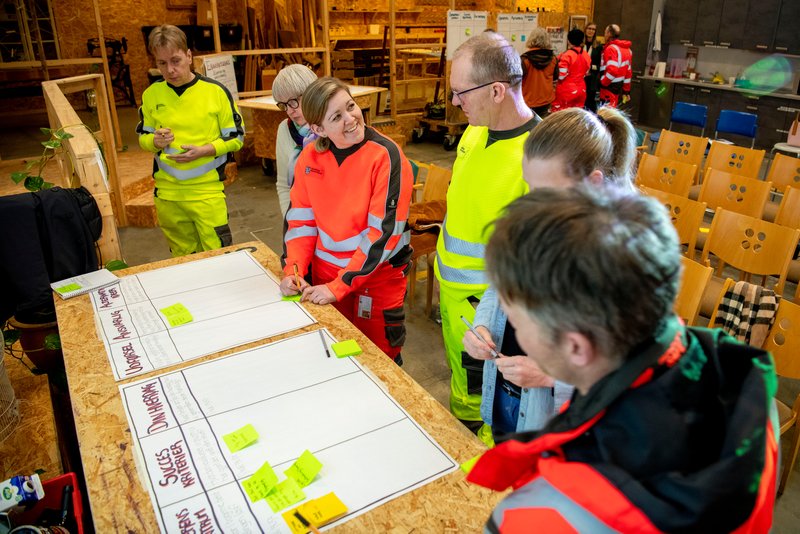
Kolding Municipality gives us the latest news on the implementation of their Action Plan

BAMEE tells us more about the changes that started to appear in Bulgaria following the Smartwaste Action Plan.
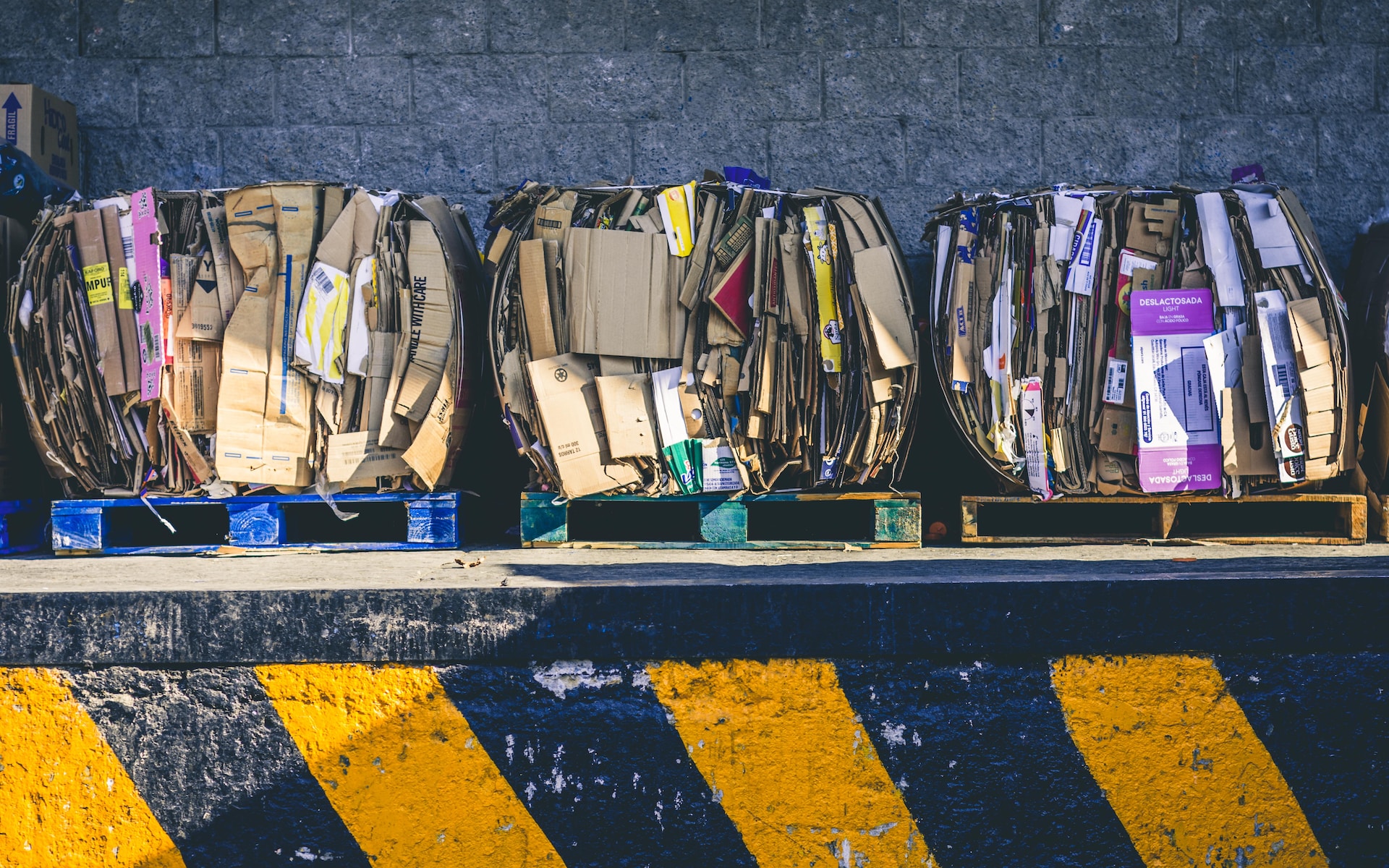
Carla Frensen tells us more about the changes that started to appear in the municipality of Apeldoorn following the Smartwaste Action Plan.

SMARTWASTE invites you to its high-level political dissemination event, set to unfold in Sofia on 11 May 2023. This event will act as the project’s final even.
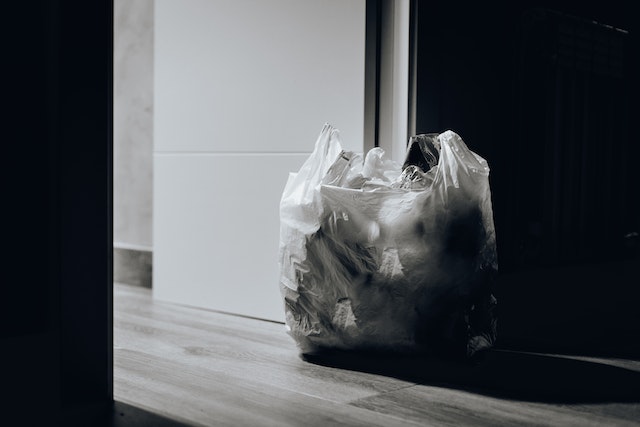
The European Commission proposed a new EU-wide rules on packaging and packaging waste as a key building block of Circular Economy Action Plan.
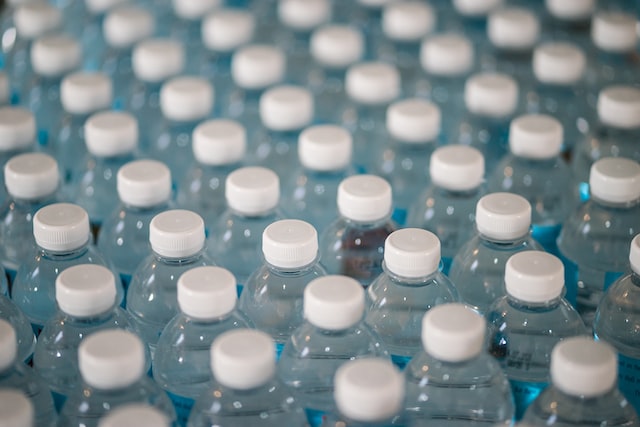
A focus on announced EU legislation relevant for Packaging and Packaging Waste, Biobased/Biodegradable and Compostable Plastics & Single-Use Plastics Directive.
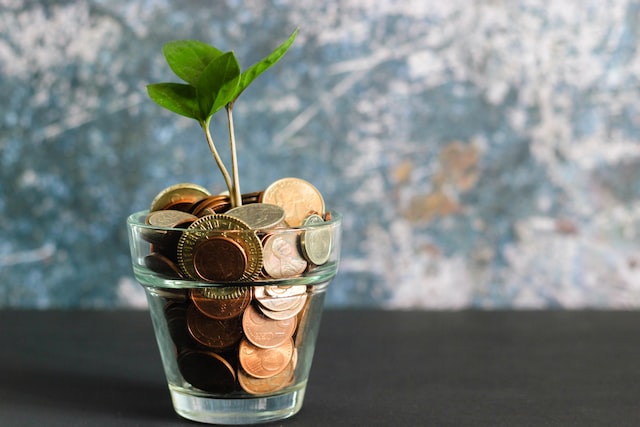
With its Action Plan, ARRR has been working on introducing a new action to support circular economy through waste recycling in the Tuscan ROP ERDF 2021-2027.
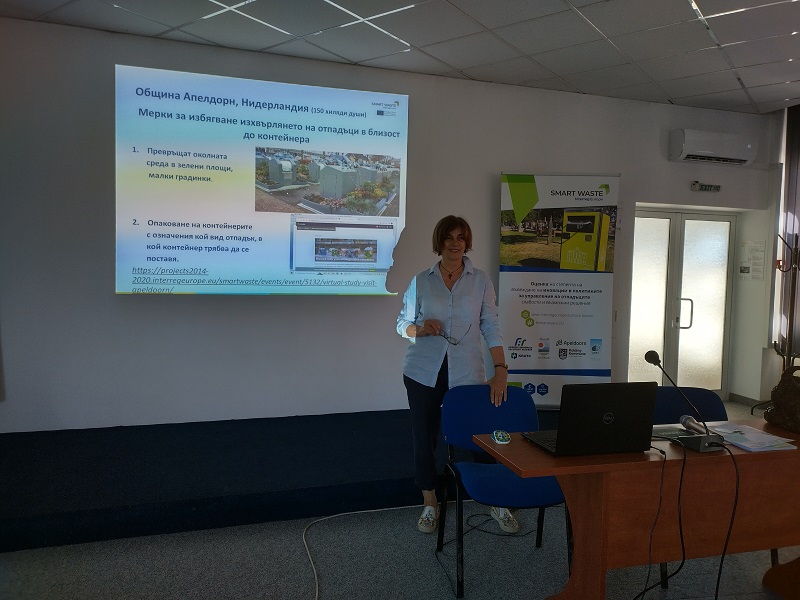
The last stakeholders meeting in Bulgaria focused on validation of the drafted action plan and the engagement of the citizens in separate waste collection.
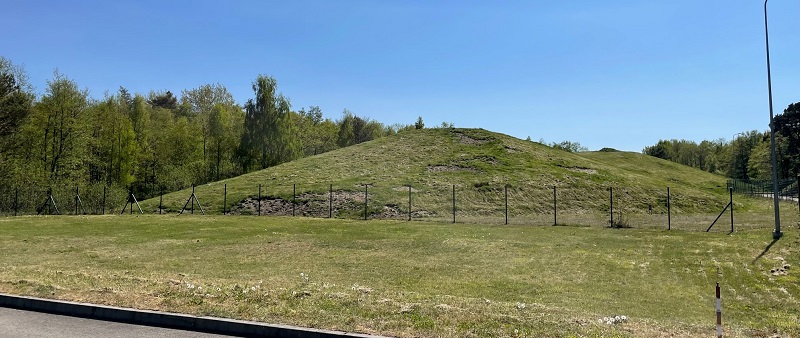
At the end of the month, the SMART WASTE project will close its first phase which has been focused on interregional learning. What does that mean?